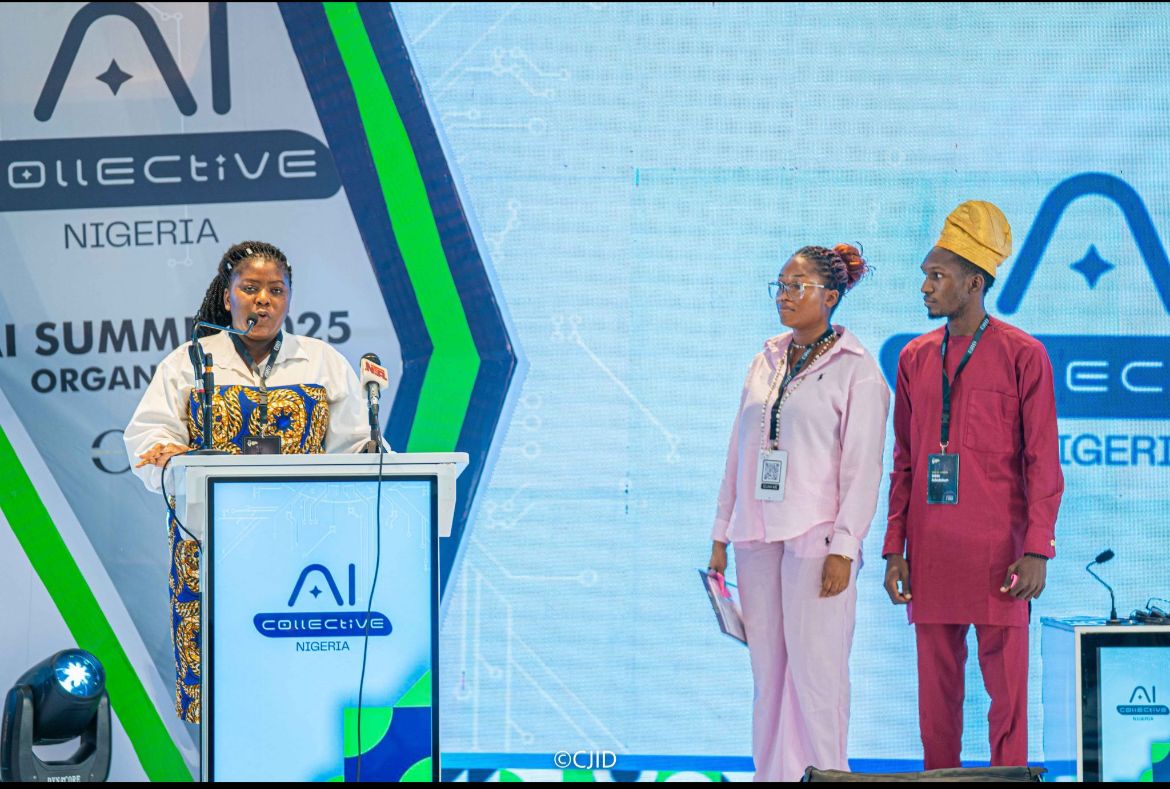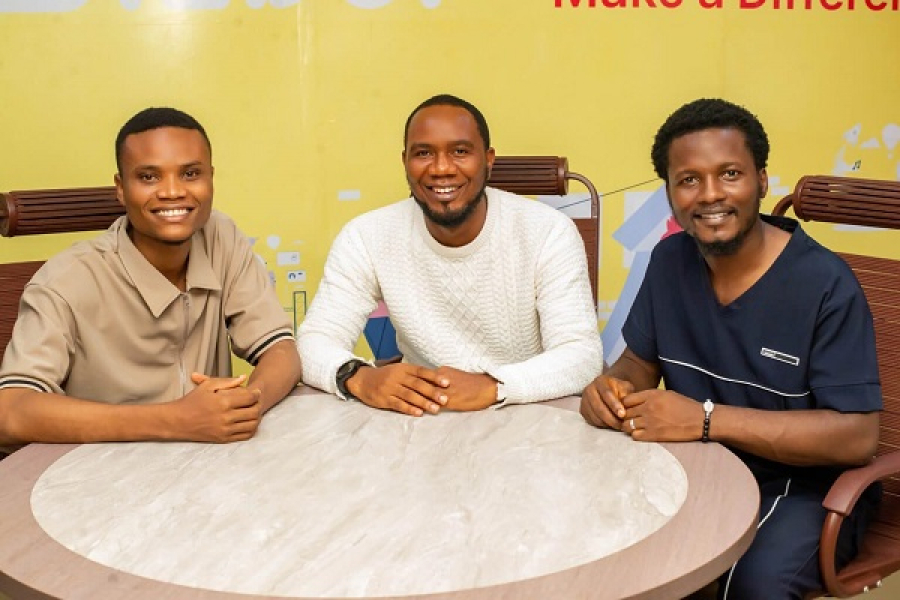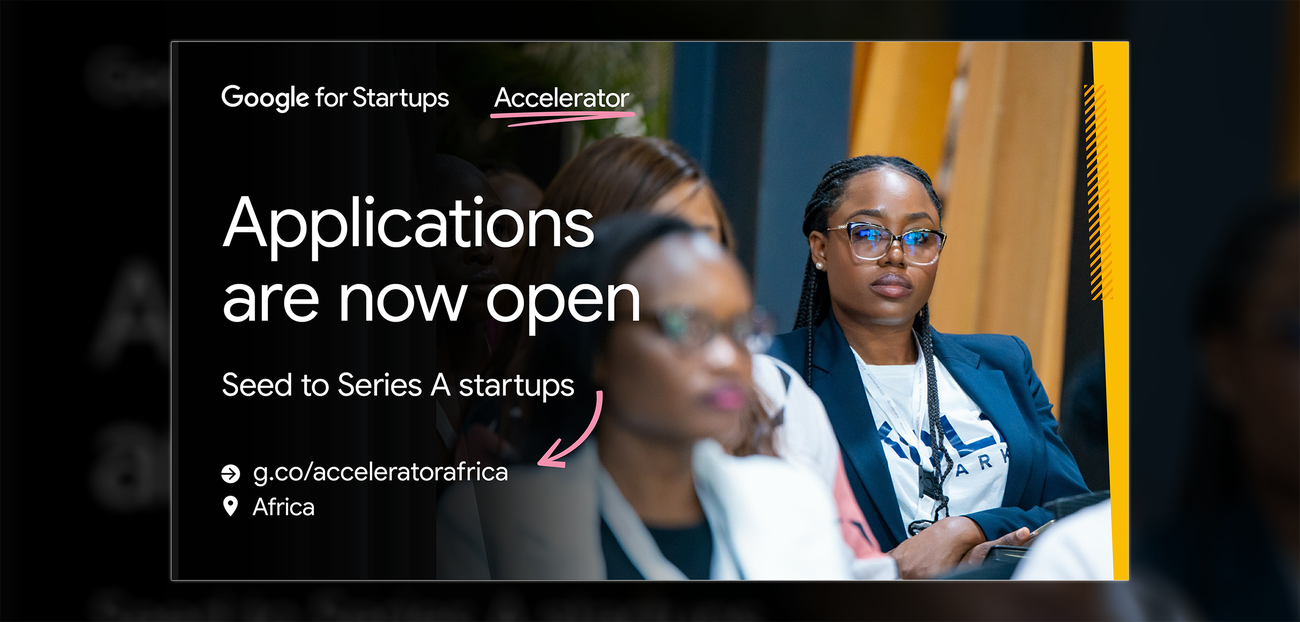Published: June 12, 2025, 01:21 AM WAT
By [Michael Bright], AI Reports Africa (@aireportsafrica)
Key Points
- Research suggests these 5 African AI startups are leading innovation in 2025, but funding and ethical debates persist.
- It seems likely they’re transforming education, accessibility, finance, and mental health using AI.
- The evidence leans toward their potential to position Africa as a global AI leader, though challenges remain.
Introduction
Africa’s AI landscape is booming, with startups leveraging artificial intelligence to tackle local challenges and gain global attention. Selected for Google’s prestigious AI accelerator program, these 5 startups are at the forefront of innovation in 2025. Here’s a look at how they’re changing the game and why they matter for Africa’s future.
The Top 5 Startups
- Darsel: An AI-powered math learning platform, Darsel uses chatbots on WhatsApp and SMS to provide personalized education for students in low-resource areas, reaching over 200,000 learners.
- Signvrse: This social enterprise uses AI and 3D avatars for real-time sign language translation, enhancing accessibility for the Deaf community across Africa.
- Aku: A Nigerian fintech startup likely using AI for banking services like payments and fraud detection, making finance accessible to all.
- 3iSolution: A not-for-profit using AI for data management in humanitarian efforts, improving decision-making in development projects.
- Ceta Global: Focuses on AI-driven mental health training, equipping providers with simulation platforms for better care delivery.
Why Watch Them?
These startups are not just solving problems—they’re shaping Africa’s role in the global AI revolution. From education to mental health, their work highlights the continent’s potential, though challenges like funding and ethics remain. Stay tuned for their impact in 2025 and beyond.
Africa is rapidly emerging as a global hub for AI innovation, with startups leveraging artificial intelligence to address pressing challenges in education, accessibility, finance, and health. As of 2025, the continent’s AI ecosystem is thriving, driven by a new wave of companies selected for prestigious programs like Google’s AI accelerator. This report dives deep into the top 5 African AI startups to watch, exploring their missions, impacts, and the broader context shaping their growth. These startups are not just surviving—they’re transforming lives and positioning Africa as a leader in the global AI race.
The Rise of AI in Africa: Context and Trends
Research suggests that Africa’s AI landscape is experiencing significant growth, with startups addressing unique challenges like limited connectivity, language diversity, and resource constraints. A January 2025 World Economic Forum article projects the AI agriculture market to reach $4.7 billion by 2028, highlighting the sector’s potential. Meanwhile, a May 2025 Brookings Institution report notes that digital solutions, including AI, are driving meaningful livelihood improvements for smallholder farmers, with tools like RiceAdvice achieving 25% yield increases in countries like Ethiopia and Nigeria.
However, challenges persist. A 2025 ITU report indicates only 30% of rural areas have reliable internet access, limiting AI adoption. Ethical concerns, such as data privacy and local ownership, are also debated, with an X post from
@jcokechukwu on June 3, 2025, questioning external funding like the Gates Foundation’s involvement, citing allegations of promoting GMOs and population control. This controversy underscores the need for transparency as Africa builds its AI future.
Funding is another hurdle. An X post from
@emadghaly on June 6, 2025, notes that 83% of Q1 2025 AI startup funding went to Kenya, Nigeria, South Africa, and Egypt, indicating concentration in a few hubs. Despite this, the continent’s AI market is projected to grow at 19.72% annually, reaching $18.33 billion by 2030, per a 2024 Scrums.com report.
The Top 5 African AI Startups to Watch in 2025
Selected for Google’s Generative AI Accelerator program, these 5 startups exemplify Africa’s AI innovation. Each is tackling critical sectors, leveraging AI to create scalable, impactful solutions. Below, we detail their missions, technologies, and potential to reshape their industries.
1. Darsel: AI-Powered Math Education for Low-Resource Environments
- Overview: Darsel is an EdTech non-profit startup that uses AI to provide personalized math learning through chatbots on platforms like WhatsApp, SMS, and Facebook Messenger. It emerged from research at Harvard and Stanford, focusing on low- and middle-income countries.
- Technology: Its AI-driven platform offers fully-automated, interactive, and gamified learning experiences, with over 500,000 curriculum-aligned questions. It requires no apps or passwords, making it ideal for areas with limited data access.
- Impact: Darsel has reached over 200,000 students, solving 170 million questions, and aims to support 1 billion students globally. It partners with schools, providing teachers with data reports on student skills and needs, enhancing educational outcomes.
- Why It Matters: By addressing learning losses in Africa’s education systems, Darsel is equipping the continent’s youth for future challenges, with a focus on inclusivity and accessibility .
2. Signvrse: AI for Accessibility and Inclusion
- Overview: Signvrse is a social enterprise based in Kenya and Rwanda, using AI and 3D avatars to break communication barriers for the Deaf community. It’s on the Royal Academy of Engineering’s Africa Prize Shortlist for 2025 and has won awards like the Commonwealth Secretary-General’s Innovation Award.
- Technology: Signvrse offers real-time sign language translation, motion capture, and scalable API integration, ensuring digital content is accessible in local sign languages. It’s piloted in two countries, with 8,000+ hours of user testing.
- Impact: With over 70 million Deaf people in Africa, Signvrse is driving inclusivity, partnering with global organizations to integrate sign language into websites and classrooms. Its mission is to make accessibility a right, not a feature .
- Why It Matters: Signvrse is addressing a critical gap in digital inclusion, ensuring Deaf Africans can participate fully in economies and societies, leveraging AI to bridge linguistic divides.
3. Aku: Fintech Innovation with AI at Its Core
- Overview: Aku is a Nigerian fintech startup offering easy payments, banking, and financial management tools. While its website doesn’t explicitly mention AI, its selection for Google’s AI accelerator suggests it uses AI for functions like fraud detection, customer service, or personalized financial advice.
- Technology: Likely leveraging AI for secure transactions, risk assessment, and user experience enhancements, Aku aims to make banking accessible to everyone, from small businesses to individuals.
- Impact: Operating in Nigeria, Aku is driving financial inclusion, simplifying money management for millions. Its AI-driven features could help it compete in Africa’s growing fintech market, with potential expansion across the continent .
- Why It Matters: As Africa’s digital economy expands, Aku’s AI innovations could empower users, reducing financial barriers and fostering economic growth.
4. 3iSolution: AI for Humanitarian and Development Impact
- Overview: 3iSolution is a not-for-profit organization registered in France, focusing on information management for humanitarian, development, and academic sectors. It uses AI to generate actionable insights from complex data sets, selected for Google’s AI accelerator.
- Technology: While not a traditional startup, 3iSolution leverages AI for data analysis, capacity building, and monitoring & evaluation, supporting projects in over 30 countries, including Africa.
- Impact: With 200 projects implemented and funding from partners like UNICEF and the EU, 3iSolution enhances decision-making in disaster response and development planning, directly benefiting communities .
- Why It Matters: Its AI-driven approach ensures humanitarian efforts are more effective, addressing critical needs in Africa’s development landscape, though its not-for-profit status sets it apart from typical startups.
5. Ceta Global: AI-Powered Mental Health Training
- Overview: Ceta Global, based in Africa with partners in Zambia and South Africa, uses AI to address mental health care shortages. It equips providers with simulation platforms for realistic role-play and personalized feedback, selected for Google’s AI accelerator.
- Technology: Its AI-driven platform standardizes evidence-based training, streamlining workforce challenges and improving care delivery through cost-effective, transdiagnostic systems.
- Impact: By training thousands of mental health providers globally, Ceta Global is tackling Africa’s mental health crisis, ensuring better access to quality care .
- Why It Matters: Mental health is a growing concern, and Ceta Global’s AI innovations could transform care delivery, addressing a vital need in Africa’s health sector.
Honorable Mentions: Other AI Startups to Watch
While the above 5 are standout selections, other African AI startups are making waves. Notably, Thunder Code, founded by Tunisian entrepreneurs, is an AI-powered software testing platform that raised $9 million in seed funding. Its generative AI approach could revolutionize tech industries globally . Additionally, an X post from
@AfricaFactsZone on October 19, 2024, highlighted Irawoai, a Nigerian startup using AI for personalized running training plans, raising $1.2 million and attracting over 5,000 users, though its 2024 mention suggests continued relevance.
Challenges and Controversies
The evidence leans toward these startups’ potential, but challenges remain. Infrastructure gaps, with only 30% of rural areas having internet access per a 2025 ITU report, could limit scalability. Funding concentration, as noted in an X post from
@emadghaly on June 6, 2025, with 83% going to four countries, raises equity concerns. Ethical debates, like an X post from
@jcokechukwu on June 3, 2025, questioning external funding motives, highlight the need for transparency. These controversies underscore the complexity of Africa’s AI growth, requiring balanced approaches to ensure inclusivity.
Comparative Analysis: Key Metrics
To better understand these startups, here’s a table comparing their focus areas, technologies, and impacts:
| Startup | Focus Area | AI Technology | Reach/Impact | Location |
|---|---|---|---|---|
| Darsel | Education | AI chatbots for math learning | 200,000+ students, 170M+ questions | Africa-wide |
| Signvrse | Accessibility | Real-time sign language translation | 70M+ Deaf people, piloted in 2 countries | Kenya, Rwanda |
| Aku | Fintech | Likely fraud detection, customer service | Millions in Nigeria, potential expansion | Nigeria |
| 3iSolution | Humanitarian Aid | Data analysis, capacity building | 200+ projects, 30+ countries | France, Africa |
| Ceta Global | Mental Health | Simulation platforms for training | Thousands of providers globally | Africa, Zambia, SA |
This table highlights their diverse applications, showcasing Africa’s multifaceted AI ecosystem.
Future Outlook and Market Potential
Research suggests these startups could drive significant growth, with Africa’s AI market projected to reach $18.33 billion by 2030, per a 2024 Scrums.com report. Their inclusion in Google’s accelerator, offering up to $350K in Google Cloud credits per a 2025 Google blog post, positions them for scalability. As
@aireportsafrica, your audience is at the forefront of understanding how these innovations could transform sectors, from education to health, fostering economic and social progress.
Conclusion
The top 5 African AI startups—Darsel, Signvrse, Aku, 3iSolution, and Ceta Global—are redefining innovation in 2025, leveraging AI to tackle critical challenges. With honorable mentions like Thunder Code and Irawoai, Africa’s AI ecosystem is vibrant and promising. As these companies grow, they’re not just shaping their industries—they’re positioning Africa as a global AI leader. Stay tuned to
@aireportsafrica for more insights into this transformative journey.
Key Citations
- Darsel math learning chatbot using AI
- Signvrse AI for accessibility
- Aku easy payments banking
- 3iSolution information management
- Ceta Global mental health training
- Thunder Code AI software testing
- World Economic Forum AI agriculture market
- Brookings Institution digital solutions in agriculture
- ITU rural internet access report
- Scrums.com AI market projection
- Google for Startups Accelerator Africa
- X post on AI funding concentration
- X post on funding controversy
- X post on Irawoai startup




